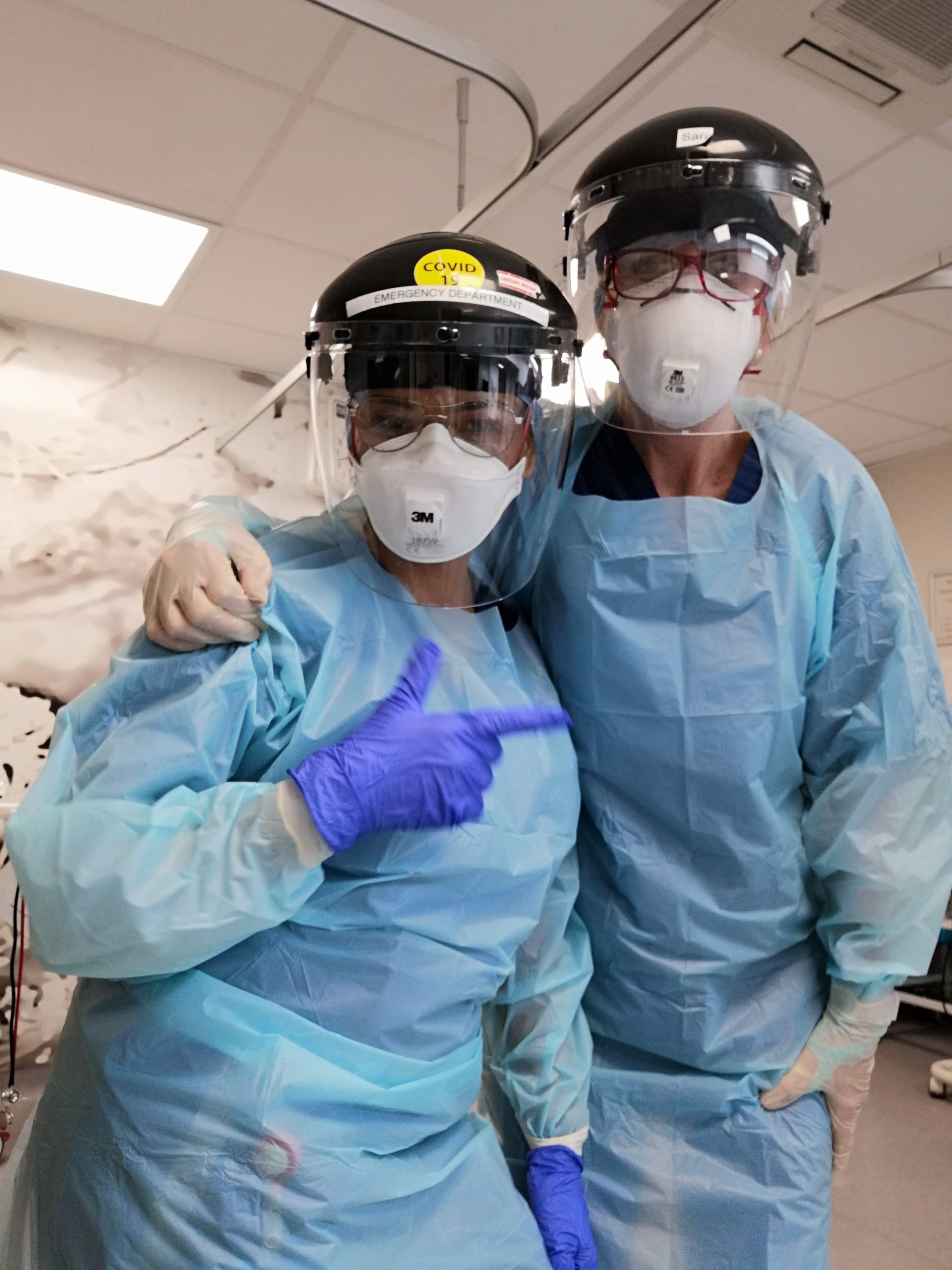Posted:
17 Oct 2020
College Nurse Jo Rhodes comes to Trinity Hall after working as a staff nurse for two years in Accident & Emergency. When Coronavirus took hold across the country she and her colleagues faced a new challenge.
The Trinity Hall college nurse’s job is as broad as it is vital, and with the ongoing Coronavirus pandemic it’s more important than ever. Our student handbook describes her role like this:
“The College employs a Nurse, Jo Rhodes, who can administer treatments and medications; give healthcare advice for conditions such as asthma, diabetes and eating disorders; treat minor illnesses and injuries; support, monitor and care for students recovering from serious illnesses, accidents, operations or hospitalisation; offer advice and raise awareness of general health issues and preventative measures…”
And the list goes on.
Fortunately Jo is used to juggling things and giving care in one of the most extreme environments – a busy hospital A&E ward.
For the past two years she has worked in the West Suffolk Hospital A&E in Bury St Edmund’s.
In normal times it was busy said Jo: “Working as an A&E nurse up until recently has involved doing 12 hour shifts at a relentless pace. It never stops. From the critical patient who has suddenly been taken unwell to those with ongoing, long-term health issues who deteriorate, or those who had an accident four days ago but now think they might have broken their wrist. It remains varied to say the least.”
But as Coronavirus forced the country into lockdown she saw a dramatic shift in those presenting at hospital: “Members of the general public stayed away and were forced to self-care. Those attending A&E during that time were dramatically unwell: heart attacks, respiratory complications, or elderly with chronic underlying conditions. We were having to keep relatives away, wear full PPE and try to do our job.”

Jo Rhodes, Trinity Hall nurse, and an A&E colleague in full PPE
The hospital had a special area where those who might have Coronavirus, as alerted by the ambulance crew, were triaged and assessed quickly. It was here that nurses like Jo faced up to their most challenging work.
“In this area you had to wear the high-quality, full PPE protection. I cannot explain how difficult it makes life when trying to cannulate (place a thin tube into) a patient. Two thick layers of rubber gloves, a neck to floor gown, hair net, face mask and full visor – plus my usual glasses in order to be able to see.
“It is hot, restrictive, you cannot hear and often the patient cannot hear you.”
For some patients, especially those suffering from dementia, it was a very unsettling experience and required great patience and skill from those treating them.
For the nurses it could mean fainting spells, feelings of claustrophobia and increased irritability. “We realised quickly that a four hours there was the maximum, but make no mistake, we all had to do our stint as part of our shift.”
Jo took up her College post this term, having worked for the college on and off over the summer. She is now helping to care for anyone who needs her help in the College and promote the guidance on Coronavirus: “We are all trying to interpret the guidelines in relation to the college being able to function, and I hope to help everyone, help themselves in looking after their wellbeing.”
Having a College nurse has made a huge difference to those in College. One member talks of their experience when they had symptoms: “When I was ill, Jo was a constant source of support. Her check-ins made me feel less isolated, and she was always happy to answer any questions I had. I’m so grateful that we have her at Trinity Hall.”
Jo’s experience has taught her many valuable lessons – including this sobering one:
“From my experience it was very apparent, and remains so, that those at greatest risk are the elderly and people with underlying conditions. But there is always that random person. Fit, healthy, 35-years-old say, with absolutely no apparent weakness for whom the virus can prove fatal.
“So please – Wear your masks, wash your hands and keep your distance.”
Jo usually works on Mondays, Wednesdays and Fridays. She operates a drop in service at the Wychfield Site in New Build Flat D01, but students can also contact her by email (nurse@trinhall.cam.ac.uk) and she can arrange to visit them in their rooms or in hospital. While coronavirus-related restrictions are in place, visits will be conducted in line with social-distancing guidelines.
For more on the College’s Coronavirus response see our webpages: www.trinhall.cam.ac.uk/coronavirus.
